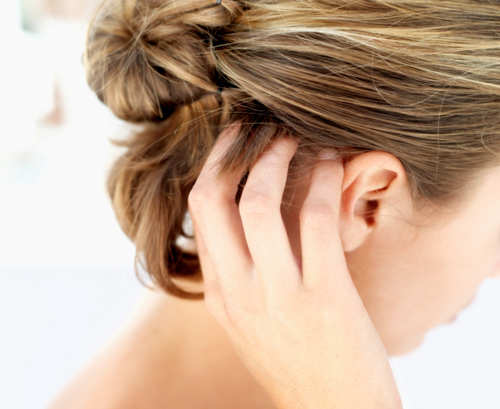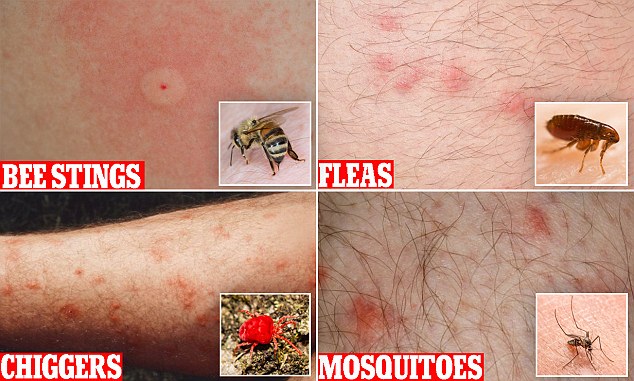
Ginger, or adrak, is one spice that all Indians, or rather Asians, are very well aware of. The flavour-enhancing root spice is added to a number of curries, drinks and even sweets. The warm and zingy-tasting ginger is a part of a number of our home remedies for digestive troubles, as well as for cold and cough. The active compound in ginger, gingerol has analgesic (pain-relieving), sedative (sleep-inducing), antipyretic (anti-fever) and antibacterial properties. This makes ginger a good remedy for a whole range of problems. Ginger is also good for fighting inflammation in the body, due to the presence of antioxidant zingerone in it. This is why ginger is able to boost immunity and enhance skin quality as well. But, did you know that you can even fight scalp infections and dandruff using ginger?
Ginger is indeed a great beauty ingredient as well. Ginger juice can be added to face and hair masks to fight skin and scalp infections, due to its anti-bacterial or anti-microbial abilities. Ginger juice can restore health to your scalp and may even help in dealing with itchy scalp and dandruff. Some people even use ginger juice to control hair fall, as dandruff is considered a leading cause for hair fall. However, the role of ginger is preventing hair fall has only been proven by anecdotal evidence. It can most certainly help you dealing with dandruff. Here's how to use it to regain a healthy and happy skin on your scalp.
Ginger Hair Mask For Dandruff And Itchy Scalp
How to make ginger hair mask for dandruff and itchy scalp:
1. Take a fresh ginger root and slice it into pieces using a sharp knife or grate it.
2. Add sliced or grated ginger to some water and set it boil on a low flame. Slowly the colour of the water will start to change and after a few minutes it will turn slightly muddy or translucent yellow.
3. Take the water off the flame and filter it out using a fine sieve.
4. Press the residual ginger collected over the sieve to drain out the maximum juice into the container.
5. Allow the water to cool down. You can either pour this juice into a tiny spray bottle and spray it onto your scalp directly or mix it with an oil carrier and then apply the oil to your scalp.
Allow the mask to sit on your scalp for half an hour and then rinse it off with a gentle anti-dandruff shampoo. You can treat your scalp to the ginger juice or ginger juice mixture about once a week, in order to deal with dandruff and itchy scalp. The latter is the indication of bacterial growth and you may have it checked by a dermatologist before trying to treat it yourself. Besides this hair mask, regular oiling and massage is also important to treat dandruff.
Insect bites and stings ( bee, wasp, fire ant, mosquitoes, snakes ) can be painfully annoying. The stings are often accompanied by redness, swelling, pain and inflammation. Some of the stings and bites, if not treated timely, can prove to be fatal. The goodness of homeopathy is known to all.
There are excellent homeopathic medicines available for insect stings and bites.
1. Formica Rufa: Stings from fire ants can be an awful experience. There is blistering and the affected area appears reddish. The sting results in an excruciating stinging pain. There is uncontrollable itching at the affected site. However, the sting does not result in much swelling. Formica Rufa is an effective homeopathic medicine to treat such stings.
2. Apis Mellifica: Sometimes, insect bites or stings result in immediate swelling and inflammation at the site of the sting. The unbearable stinging pain is followed by itching. There is a burning sensation and the affected area appears red and hot. In extreme cases, there is considerable swelling of the throat and the mouth (the mucous membrane swells). Apis Mellifica is a powerful medicine providing immense relief. Since the sting site feels hot, a cold compression can be a good option.
3. Staphysagria: Do not lose sleep over mosquitoes and mosquito bites. Staphysagria is an excellent homeopathic option to deal with mosquito bites. The medicine serves dual purpose. It can be effectively used before (Prophylactic) as well as after the bite. Caladium Seguinum can also be used to treat mosquito and fly bites
4. Ledum and Lachesis: Ledum is the best homeopathic remedy against poisonous animal bites. When it comes to snake bites, nothing can be more helpful than Ledum. The area affected by the bite turns slightly bluish. The area feels cold and there is a pricking pain and inflammation. Sepsis from animal bite can also be prevented by Ledum.
Lachesis is equally helpful against snake bites and other poisonous insect bites. This medicine is recommended in case the injury site appears bluish purple. There may be a haemorrhage, with the blood appearing few shades darker (almost black in some cases).
Though Ledum and Lachesis provide great relief, getting medical assistance is still very important.
1. At times, an insect sting can leave a person traumatised. There may be a stinging pain with swelling and tingling. Aconitum Napellus is the best option to treat and deal with such situations.
2. Urtica Urens is helpful against allergic reactions resulting from insect bites and some foodstuffs (shellfish).
3. Histaminum is useful against insect bites and hay fever.
4. Cantharis provides relief from stings and bites resulting in inflammation and redness.
Most of the Homeopathic medicines provide almost instant relief from insect bites and stings.
You have finally motivated yourself to get up early in the morning and your spirits are high. You are on a nice run and shed a couple of minutes off your pace. But then comes a sudden urge to scratch your legs. There it is, one of the most common sensations a runner tends to experience is itchy legs. The sudden urge to scratch your legs, that too, on a severe intensity can be quite uncomfortable, annoying and embarrassing at the same time as well.
One should also eat foods that are anti-inflammatory as they heal excessive internal dryness." If you happen to experience the same and wish to get rid of this issue, then here's a list of five foods that can come to your rescue. Read on to know more about them.
1. Ghee
Ghee is an excellent source of essential fatty acids that can induce hydration in the skin cells. Pure ghee is a good source of healthy fats that can keep the issue of dry skin at bay.
2. Oily Fish
Omega-3s found in oily fish, such as salmon, mackerel and herring, could help you get rid of runner's itch, as it can heal internal dryness by building up layer of lipids that retain moisture beneath the skin.
3. Flaxseeds
Inflammation is one of the main causes of this issue. Including flaxseeds in your daily diet can play a crucial role here, as it is loaded with omega-3 fatty acids that produce anti-inflammatory effect in the body.
4. Chia Seeds
These tiny seeds are a powerhouse of various health benefits. Chia seeds have the right balance of fatty acids and loaded with flavonols that help to promote anti-inflammatory responses.
5. Coconut Oil
This kitchen ingredient can do wonders for your skin. To get rid of runner's itch, the best way to use coconut oil is by applying it on your legs.










